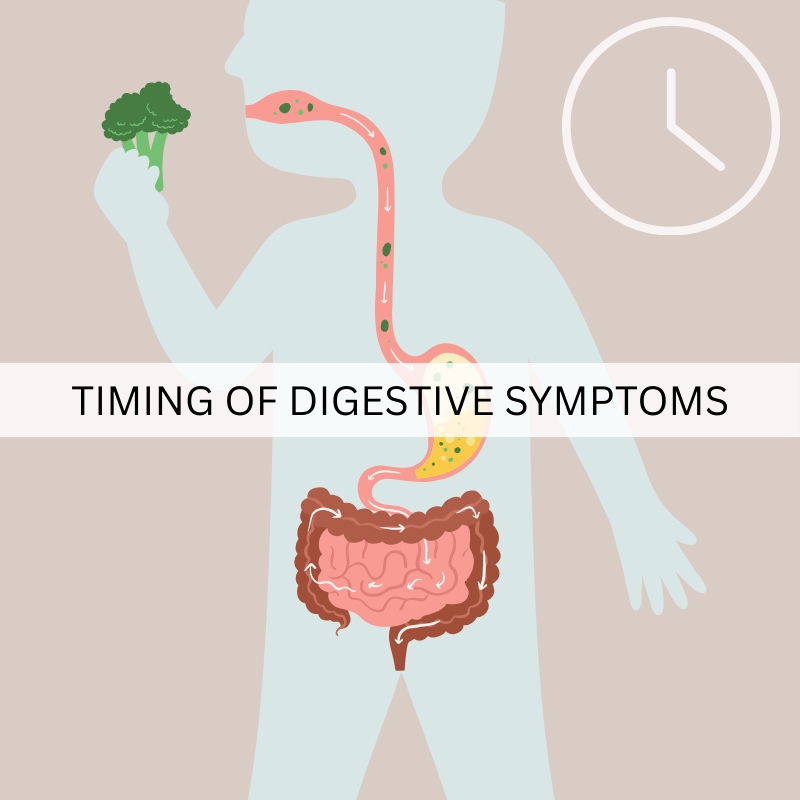Introduction: Listening to Your Body’s Signals
Have you ever experienced digestive discomfort shortly after eating and wondered if the meal you just had was the culprit? It’s a common concern, especially when managing conditions like IBS. Understanding the timing of symptoms can provide clarity and help you make informed dietary choices.
The Journey of Food Through Your Digestive System
Our digestive tract is a complex system, and food doesn’t move through it instantly. In healthy individuals, it typically takes between 12 to 48 hours for food to travel from the mouth to the anus. The small intestine alone spans about 6 meters, and the large intestine adds another 1.5 meters to the journey.
Given this, it’s unlikely that symptoms occurring immediately after eating are due to the fermentation of FODMAPs from that specific meal. So, what’s causing these rapid reactions?
Immediate Symptoms: The Role of Digestive Reflexes
When we eat, our body initiates a series of responses:
- Hormonal Signals: Eating stimulates the release of hormones like cholecystokinin and secretin, which aid digestion.
- Nerve Activation: The stretching of the stomach activates nerves that prompt intestinal muscles to move, pushing contents through the gut.
These processes can cause the movement of existing contents in the intestines. If these contents contain FODMAPs from previous meals, their movement can trigger symptoms like bloating or urgency, even though the current meal isn’t the direct cause.
Delayed Symptoms: Considering Previous Meals
It’s essential to recognize that symptoms might be linked to meals consumed earlier, not just the most recent one. The digestive system is continuously processing food, and reactions can be delayed. Keeping a food and symptom diary can be invaluable in identifying patterns and potential triggers.
Beyond Food: Other Influencing Factors
While diet plays a significant role, other elements can influence digestive symptoms:
- Stress and Anxiety: Emotional states can impact gut function, leading to symptoms.
- Physical Activity: Exercise levels can affect digestion.
- Sleep Patterns: Quality and duration of sleep can influence gut health.
Being mindful of these factors can provide a more comprehensive understanding of your digestive health.
Empowering Yourself Through Awareness
Understanding the timing of symptoms is a step towards better managing IBS and other digestive conditions. By considering both recent and earlier meals, as well as lifestyle factors, you can gain insights into your body’s responses.
If you’re navigating these challenges, remember that you’re not alone. Consulting with a dietitian or healthcare professional can provide personalized guidance tailored to your needs.
Conclusion: Embracing a Holistic Approach
Digestive health is multifaceted, influenced by diet, lifestyle, and emotional well-being. By adopting a holistic perspective and being attuned to your body’s signals, you can make informed choices that support your overall health and comfort.
Note: This article is based on information from Monash University’s blog on the timing of symptoms and FODMAPs. For more detailed insights, you can refer to their original article.








